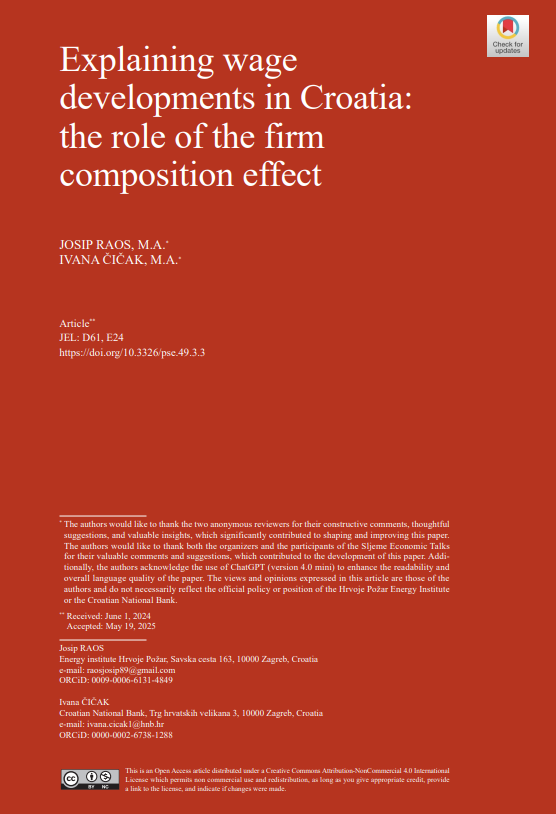Explaining wage developments in Croatia: the role of the firm composition effect
DOI:
https://doi.org/10.3326/Keywords:
wages dynamics, decomposition, allocation premium, productivity, firm composition effectAbstract
While wage developments are primarily driven by changes in real economic activity, the role of labour force allocation is often overlooked. Using Croatian establishment-level data (2002-2023), we apply static and dynamic Olley-Pakes decompositions to assess how labour reallocation impacts wages and productivity. The wage allocation premium, defined as the ratio between actual aggregate wage and wage under random worker distribution, reveals a countercyclical impact until 2021, turning procyclical after the pandemic. Dynamic decomposition supports these findings and demonstrates that entering firms depress average wages, while exiting firms raise them slightly. Applying the same approach to productivity, we find that labour reallocation mitigated productivity losses during the recession and moderated growth during the recovery. Unlike wage patterns, this countercyclical effect on productivity persisted post-pandemic. Since 2020, wage allocation premium growth has outpaced the gross value added (GVA) allocation premium, which may have pressured firms to raise prices, potentially contributing to inflation.

Downloads
Published
Issue
Section
License
Copyright (c) 2025 Josip Raos, Ivana Čičak (Author)

This work is licensed under a Creative Commons Attribution-NonCommercial 4.0 International License.








